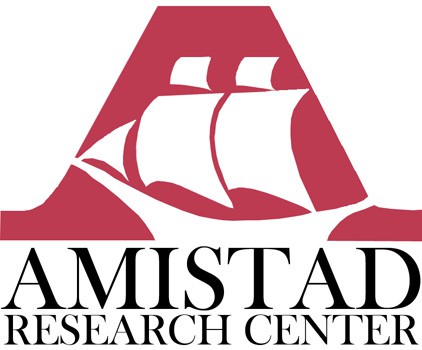The Amistad Research Center is pleased to announce new online finding aids for the personal papers of two African American leaders who served in Dwight D. Eisenhower’s presidential administration: Edward R. Dudley (1911-2005) and E. Frederic Morrow (1909-1996).
Attorney and ambassador Edward R. Dudley, born in 1911 in South Boston, Virginia, was the first African American to serve as a United States Ambassador, serving as President Eisenhower’s ambassador to Liberia from 1948 to 1953. Dudley was also a Supreme Court Justice of the state of New York and an active participant in the civil rights movement working with Thurgood Marshall as an assistant special counsel for the NAACP Legal Defense and Education Fund in the 1940s.
The papers of Edward R. Dudley consist mainly of correspondence prior to 1954 documenting his experiences as legal counsel to the Governors of the United States Virgin Islands, Morris F. De Castro (1945-1946) and William H. Hastie (1946-1947), and as the American Ambassador to Liberia (1948-1953). The collection also includes many speeches given by Dudley in his role as the Ambassador to Liberia, as well as his time as the elected Borough President of Manhattan. Notable correspondents found within the papers include civil rights leader Mary McLeod Bethune, Nobel Laureate Ralph Bunche, and U.S. Presidents Dwight D. Eisenhower and Harry S. Truman, as well as Supreme Court Justice Thurgood Marshal and NAACP Executive Secretary Walter White.

E. Frederic Morrow delivering
a tribute speech to Dwight
Eisenhower at the 1960
Republican National Convention.
Everett Frederic Morrow, business executive, author, field secretary for the NAACP, and public servant, was the first African American to serve as an Executive Assistant to the President of the United States, serving during President Eisenhower’s administration. Morrow was born on April 20, 1909, in Hackensack, New Jersey. In 1935, Morrow joined the National Urban League, serving as its business manager for Opportunitymagazine, and two years later moved on to work with the National Association for the Advancement of Colored People. At the NAACP, Morrow promoted the organization’s grassroots development, traveling across the nation to foster the growth of membership and fund-raising.
Everett Frederic Morrow, business executive, author, field secretary for the NAACP, and public servant, was the first African American to serve as an Executive Assistant to the President of the United States, serving during President Eisenhower’s administration. Morrow was born on April 20, 1909, in Hackensack, New Jersey. In 1935, Morrow joined the National Urban League, serving as its business manager for Opportunity magazine, and two years later moved on to work with the National Association for the Advancement of Colored People. At the NAACP, Morrow promoted the organization’s grassroots development, traveling across the nation to foster the growth of membership and fund-raising.
After service in the U.S. Army and a position as a public affairs writer for Columbia Broadcasting Company (CBS), Morrow joined Eisenhower’s presidential campaign in 1952 as a personal advisor and administrative assistant. After Eisenhower’s election, Morrow was appointed as an advisor to Business Affairs in the Department of Commerce, a post he held until 1955. Morrow began serving as Administrative Officer for Special Projects in July 1955. After his service to the White House, Morrow wrote an account of his experience entitled the Black Man in the White House, published in 1963.
The E. Frederic Morrow papers encompass 5.0 linear feet of correspondence, autobiographical manuscript drafts, photographs, and speeches that are mainly professional in nature related to Morrow’s work in the Eisenhower administration. The correspondence is notable for descriptions about the administration’s lack of action and attention to the poor living conditions for minorities in Mississippi, as well as the continued physical abuse of African Americans during the 1950s. Notable correspondents include President Dwight D. Eisenhower, Liberian President William Tubman, and Vice-President Richard Nixon. The letters dating post-1970 mainly pertain to Morrow’s autobiographical writings, publishing efforts, and speaking engagements.
The Amistad Research Center is pleased to include these two collections in our online finding aid database and expect renewed interest in the lives and careers of Edward R. Dudley and E. Frederic Morrow as a result of the increased global access to their personal papers.
Posted by Christopher Harter
(Images from the Edward R. Dudley Papers and the E. Frederic Morrow Papers. May not be reproduced without permission.)


The ARC is the new technology and it has been used to find the online aids for the personal papers.
Independent Living Aids
LikeLike